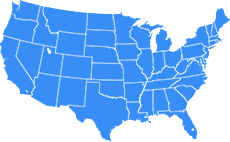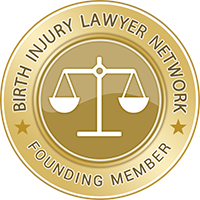Kansas Birth Injury Lawyers
Search Lawyers by Cities (Kansas)
Kansas Medical Liability/Malpractice Statutes of Limitation
All states have set deadlines for when a patient may file a civil claim, known as statutes of limitation, for medical liability and malpractice claims. The majority of the states have special provisions regarding the time limits for minors to file medical liability and malpractice claims. Twenty-two states have special provisions regarding foreign objects.
Kan. Stat. Ann. §60-513 and §60-515 Two years from act, but can be up to four years after reasonable discovery. Minors under age 18: within one year after the person reaches majority, no such action shall be commenced more than eight years after the time of the act giving rise to the cause of action.
Kansas Medical Liability/Medical Malpractice Laws
Damage Award Limit or Cap
§60-19a02. $250,000 limit on noneconomic damages for personal injury recoverable by each party from all defendants.
§16-1903. Wrongful death damages, other than pecuniary loss sustained by an heir at law, cannot exceed in the aggregate the sum of $250,000 and costs.
§60-3702. No award of exemplary or punitive shall exceed the lesser of: (1) The annual gross income earned by the defendant, as determined by the court based upon the defendant's highest gross annual income earned for any one of the five years immediately before the act for which such damages are awarded, unless the court determines such amount is clearly inadequate to penalize the defendant, then the court may award up to 50 percent of the net worth of the defendant, as determined by the court; or (2) $5 million. If the court finds that the profitability of the defendant's misconduct exceeds or is expected to exceed the limitation above, the limitation on the amount of exemplary or punitive damages which the court may award shall be an amount equal to 1 1/2 times the amount of profit which the defendant gained or is expected to gain as a result of the defendant's misconduct.
Limits on Attorney Fees
§7-121b. Compensation for reasonable attorney fees to be paid by each litigant in the action shall be approved by the judge after an evidentiary hearing and prior to final disposition of the case by the district court. Compensation for reasonable attorney fees for services performed in an appeal of a judgment in any such action to the court of appeals shall be approved after an evidentiary hearing by the chief judge or by the presiding judge of the panel hearing the case. Compensation for reasonable attorney fees for services performed in an appeal of a judgment in any such action to the supreme court shall be approved after an evidentiary hearing by the departmental justice for the department in which the appeal originated.
Periodic Payments
§60-2609. The court may include in such judgment a requirement that the damages awarded be paid in whole or in part by installment or periodic payments, and any installment or periodic payment upon becoming due and payable under the terms of any such judgment shall constitute a separate judgment upon which execution may issue.
Patient Compensation or Injury Fund
§40-3403. Health Care Stabilization Fund
Medical or Peer Review Panels
§65-4915. Authority and privileges of peer review committee
Find an Experienced Birth Injury Attorney in your Local Community
 Find A Lawyer in Columbus, OH
Find A Lawyer in Ohio
Find A Lawyer in Any State
Find A Lawyer in Columbus, OH
Find A Lawyer in Ohio
Find A Lawyer in Any State
